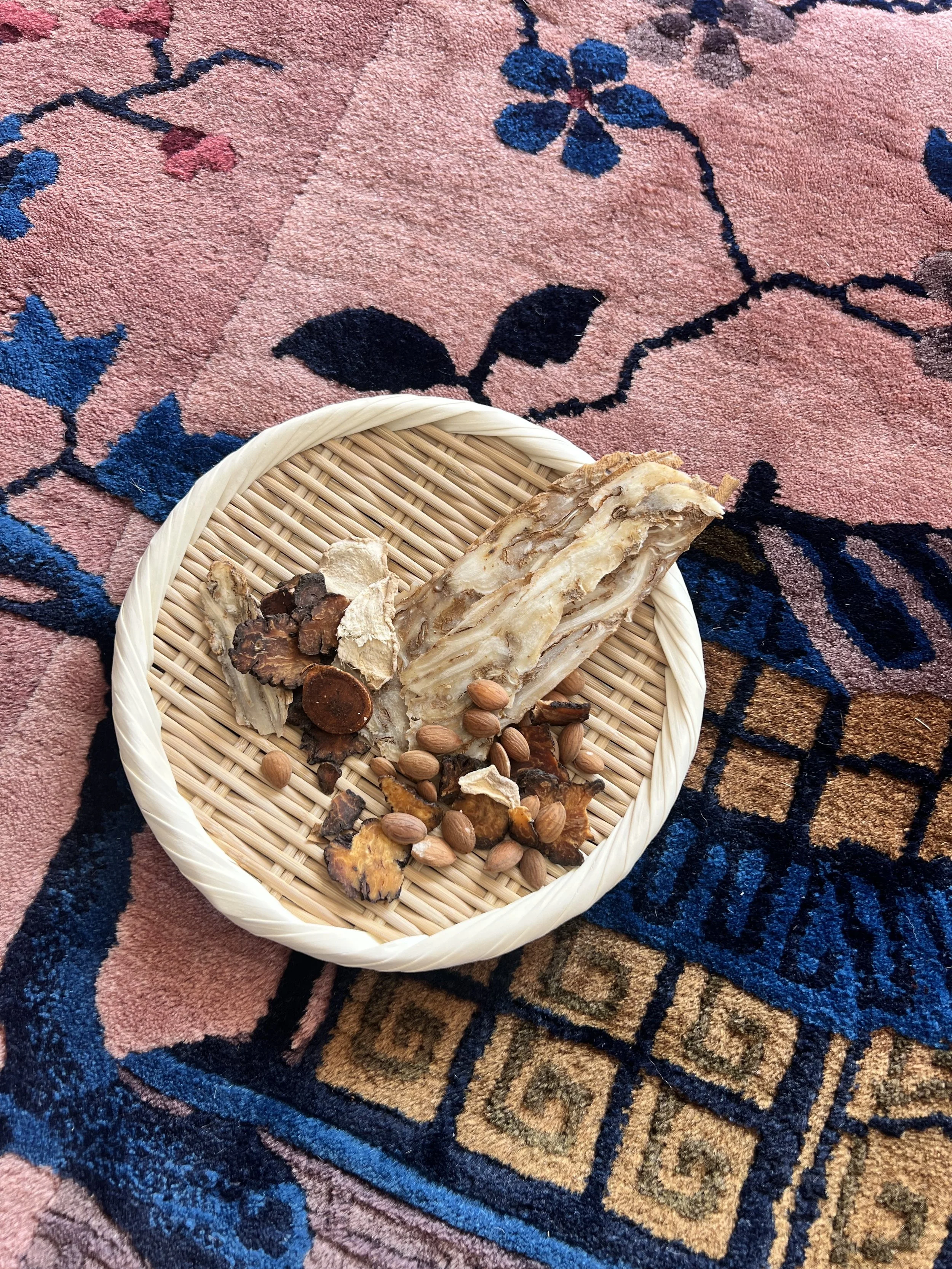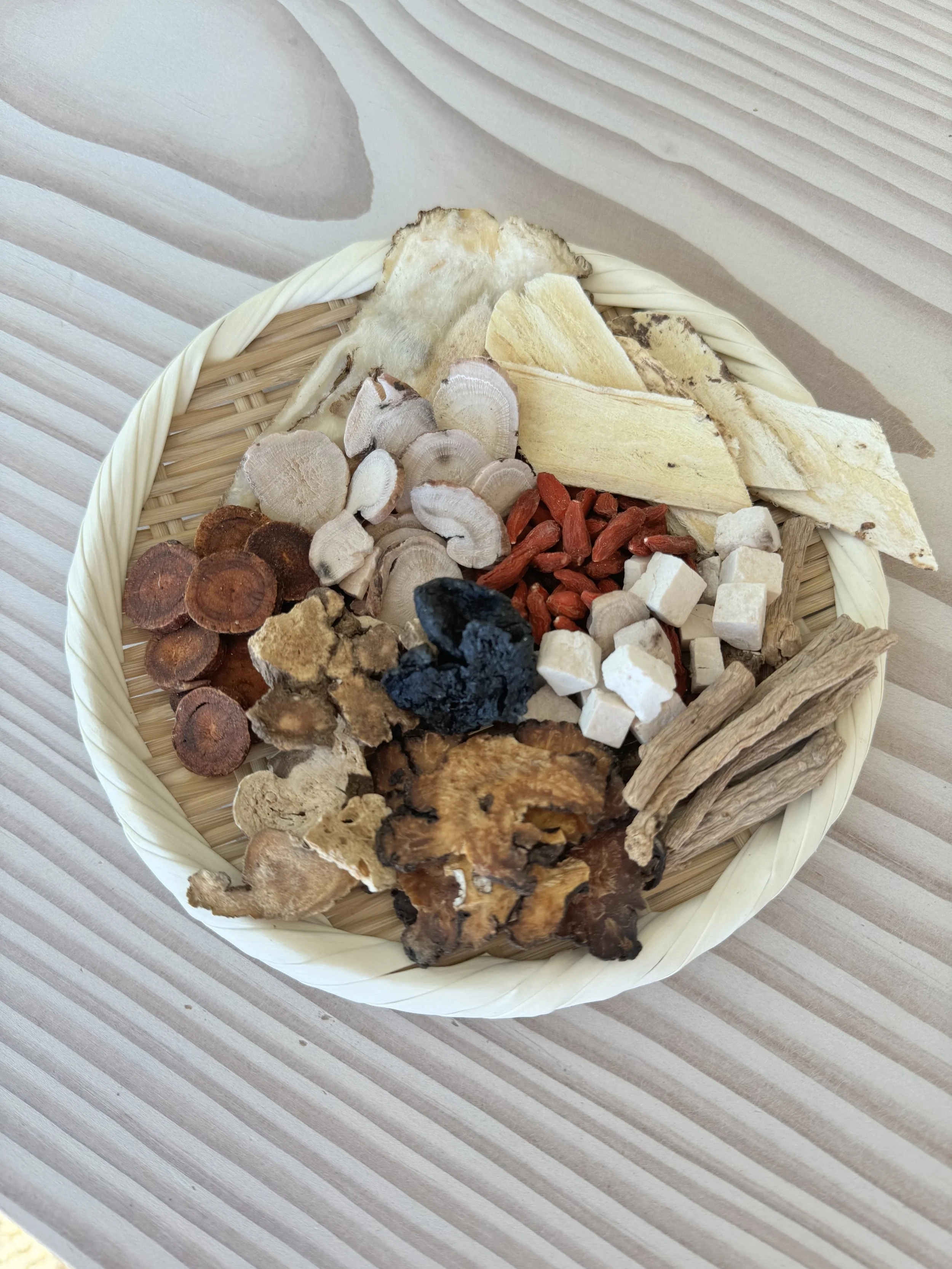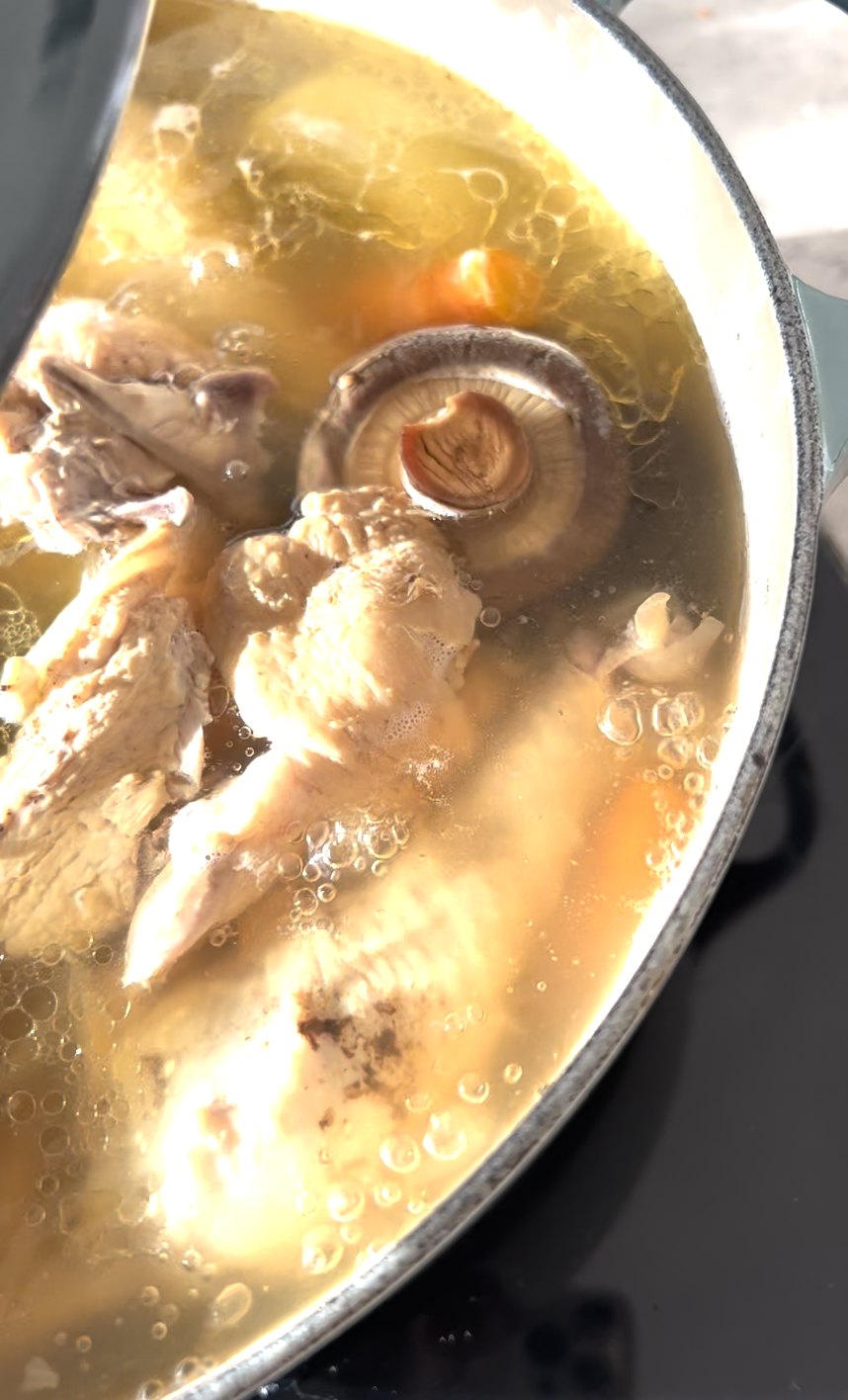TCM Postpartum Recovery Herbs 🌿👩🏻🍼
As I am anticipating to bring new life into this world, I am also preparing to enter a period where my world and our worlds as a family will be changed completely. Where I will have to juggle taking care of my newborn, breast-feeding on demand, provide care for my toddler as well as juggling that with taking care of myself emotionally and physically. For many mothers, the postpartum period is vulnerable, intense and full of love and meaning. But also one that needs to be prepared for with the utmost care and attention. I really believe that a mother needs to receive nurturing and support if she is to recover and bond w her newborn. In many cultures, especially in Asia, there are deep-rooted traditions of ‘postpartum confinement’. In China this period is called “zuo yuezi”, and an assortment of foods are consumed as well as specific rules/rituals followed throughout the first 30-40 days after the birth of your baby.
Together w. collagen-rich foods such as bone broths, vegetables, iron-rich foods, one essential aspect of postpartum confinement is the use of Traditional Chinese Medicine (TCM) herbs, carefully selected to promote healing and vitality during this crucial time. The replenishment within the 30-40 days after delivery is the most important for the recovery of the body and in TCM is related to the health of women throughout their lives. TCM also believes that any previous health problems the mother faced such as hormonal and menstrual problems, anemia and spleen deficiencies can be healed during the postpartum period.
I will outline the herbs I am planning to consume during each week of my postpartum period as well as their main properties. Please note to consult a qualified TCM practitioner, if you’re planning on taking any herbs and you’re dealing w. specific issues, as everyone’s health composition varies.
Week 1: Sheng Hua Tang (3 times in 1st week, after 3 days post-birth depending on regularity of bleeding)
This concoction strengthens Qi, promotes blood flow, replenish lost blood, prevent blood stasis and removes lochia:
During this first week it is also vital to focus on uterine restoration, strengthen digestion and aid the reproductive organs to return to normal. The concoction also helps expel remaining blood and tissue after birth.
• Dang gui (Chinese Angelica root) (当归), Radix Angelica Sinensis• Chuan Xiong (Szechuan Lovage Root) (川芎), Rhizoma chuanxiong
• Guangtaoren (Peach seed) (光桃仁), Semen Persicae
• Zhigancao (Roasted Licorice root) (炙甘草) Radix glycyrrhizae
• Paojiang (Dried Ginger) (炮姜), Rhizoma Zingiberis
Week 2: Si Wu Tang (Four Agents Decoction)
This blend is blood-nourishing helps boost energy levels, alleviating fatigue. Also treats blood Qi deficiency that is common in new mothers.
• Dang Gui (Chinese Angelica root) (当归), Radix Angelica Sinensis • Bai Shao (White Peony root) (白芍)• Chuan Xiong (Szechuan Lovage root) (川芎), Rhizoma chuanxiong • Shu Di Huang (熟地黄) (Rehmannia root)Week 3: Ba Zhen Tang (Eight Treasures Decoction)
Originating in Ming Dynasty. Tonifies the blood and Qi, boosts immune system, improve digestion and provides overall rejuvenation. Strengthens Spleen Qi to help w. Liver Blood formation.
• Chuan Xiong (Szechuan Lovage root) (川芎), Rhizoma chuanxiong• Dang gui (Chinese Angelica root) (当归), Radix Angelica Sinensis• Bai Shao (White Peony root) (白芍) • Shu Di Huang (熟地黄) (Rehmannia root)• Dang Shen (党参) (Codonopsis Root)• Bai Zhu (白术) White Atractylodes Tuber• Fu Ling (茯苓), Poria cocos• Zhigancao (Roasted Licorice root) (炙甘草)Week 4: Shi Quan Da Bu Tang (Ten Significant Decoction)
Is one of the most popular herbal formulas, invigorates and warms the Qi and blood and treats any signs of weaknesses in the body, and is commonly used after the body has gone through an event of excessive energy expended such as childbirth, surgery, injury.
• Chuan Xiong (Szechuan Lovage Root) (川芎), Rhizoma chuanxiong
• Dang gui (Chinese Angelica root) (当归), Radix Angelica Sinensis• Bai Shao (White Peony root) (白芍) • Shu Di Huang (熟地黄) (Rehmannia root)• Dang Shen (党参) (Codonopsis Root)• Bai Zhu (白术) White Atractylodes Tuber• Fu Ling (茯苓), Poria cocos• Zhigancao (Roasted Licorice root) (炙甘草)• Gou Qi Zi (Goji Berries/Wolfberry fruit) (枸杞)• Huang Qi (Astragalus) (黄芪) Sheng Hua Tang, Week 1 Decoction Post-Partum
Shi Quan Da Bu Tang, Week 4 Post-Partum
Example of a dish I would incorporate herbs into; One of my favorites which is an herbal Chicken Broth soup !


